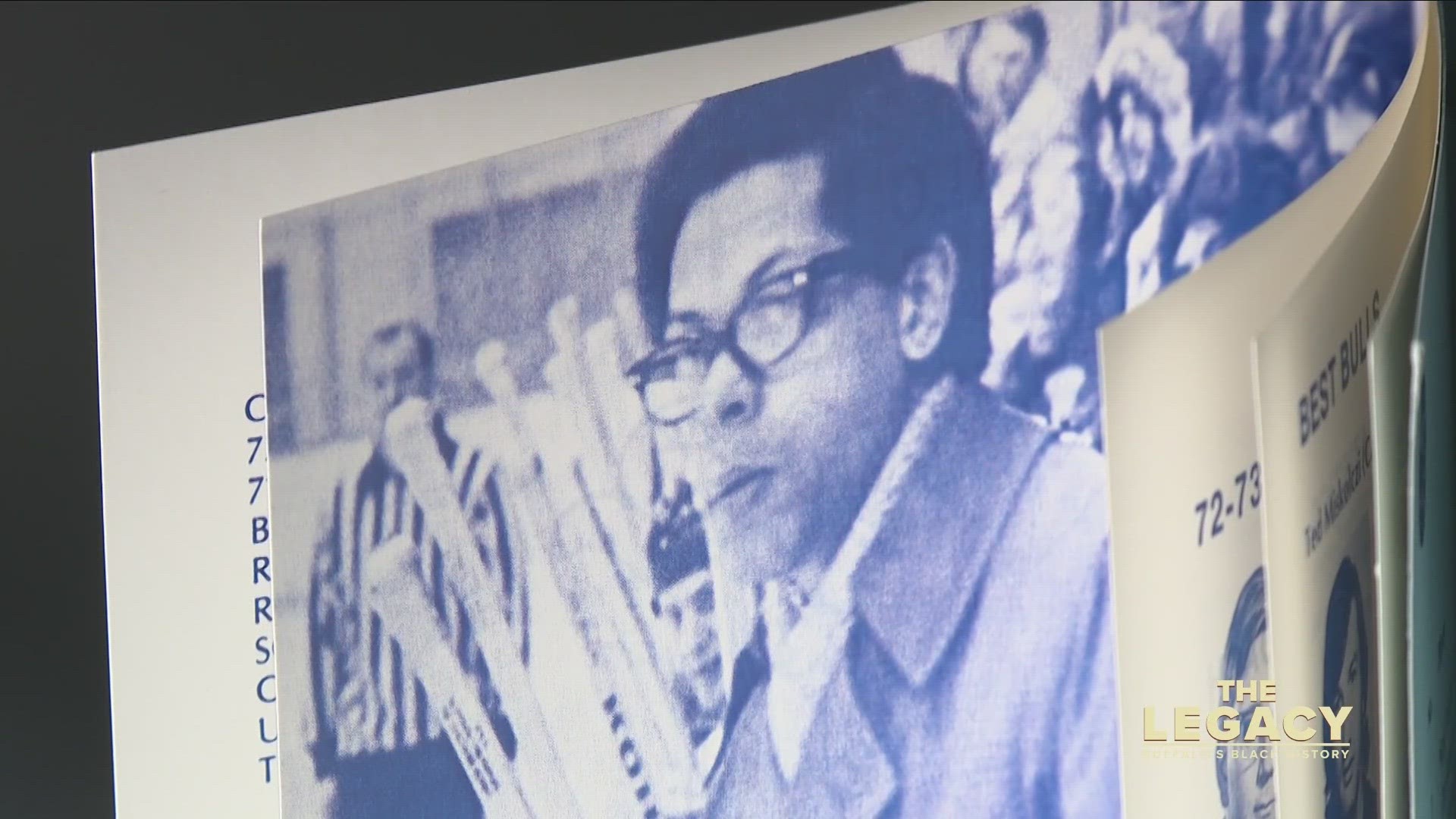AMHERST, N.Y. — Early week day mornings, you’ll find the University at Buffalo hockey team practicing at Northtown Center in Amherst.
Hockey at UB is a club sport (playing in the ACHA), a remaining part of the legacy of Ed Wright.
“It's really cool to walk around the rink and know that you’re part of a founding part of history,” said current UB hockey coach Morgan VonHedemann.
Hockey at UB used to be an NCAA varsity sport, where Ed Wright's legacy, was also part of sporting history.
Wright grew up in Chatham, Ontario, playing multiple sports.
“Chatham was the greatest place in the world to grow up,” Wright said.
Wright had a love for baseball.
“Five All-Ontario championship baseball teams," Wright was happy to point out.
And he had an equal love for hockey.
“Hockey months we were out there playing hockey … pretending to be our heroes," Wright remembered. "I was Gordie Howe on offense. I was Doug Harvey on defense.”
Despite the love for the sport, he also encountered obstacles.
“Being as poor as I was at hockey, it was the service clubs that made sure I had skates," Wright said.
Societal obstacles in addition to the financial ones.
“Once incident in peewee, we were coming into the rink, they weren’t going to allow me to play," Wright said. "Our coach says well if Ed’s not going to play, we’re not going to play.”
Those obstacles weren't enough to hold Wright back from excelling at the sport.
“I was the first Black to play for the Chatham junior maroons,” he said.
Wright’s play on the ice landed him a scholarship at Boston University, one of the top hockey programs in the country, where he went on to score 29 goals.
“I had skill, I had talent, and I had the opportunity to expose it, and for it to be recognized rather than just the color of my skin,” Wright said.
That was the mentality he took from the ice to the bench, when in 1970, recently graduated, he took the job at UB, becoming the first Black head hockey coach in NCAA history.

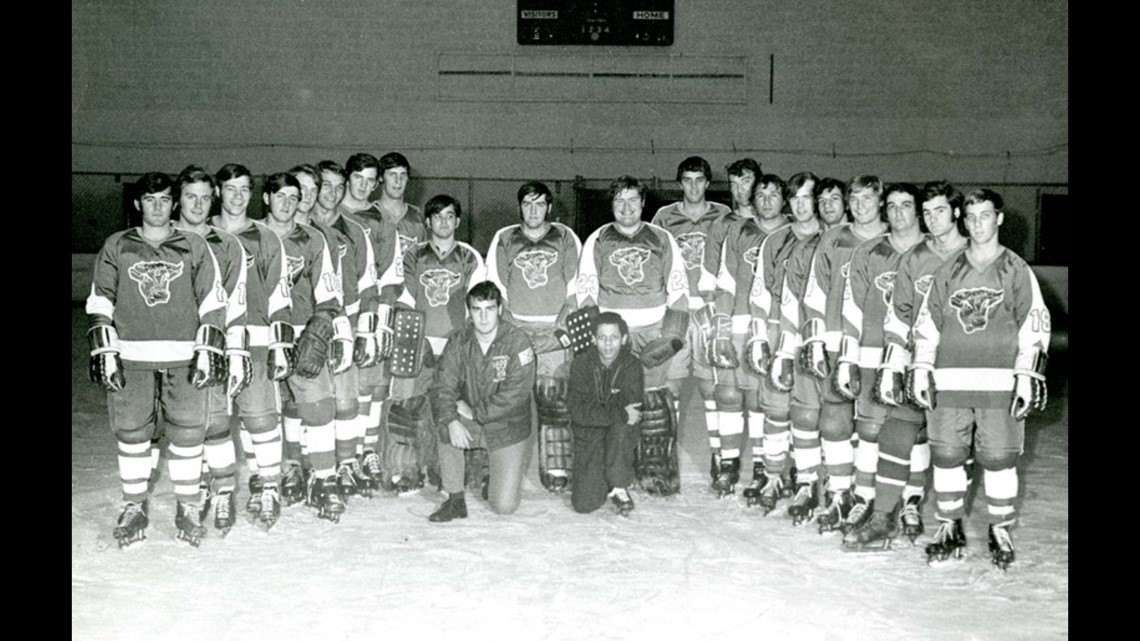
“For all the years I was coaching, I was unaware of the fact I was the only one in the country,” Wright said.
His players were also unaware, including Tunney Murchie, who played for Wright in the 70s.
“It was something that never really crossed my mind,” Murchie said. “Certainly a young coach, but he was an old school coach.”
True to his old school coaching ways, Wright showed tough love to his players.
“When you’re giving them the tough lessons, it’s because you love them. You care for them. You’re paying attention, and you want them to grow,” Wright said.
Wright's players returned that same love and respect for their head coach.
“I remember us playing one game … as you know, fans say things they really shouldn’t say. As you know Coach Ed Wright, they started yelling 'Coach Ed White.' … As far as I was concerned, those are fighting words. That’s my coach, you’re not going to disrespect him in any way,” Murchie said.
“So I turned and confronted a little bit and he grabbed me by the shoulder and said Tunney, your battle is not up there, it’s out on the ice, and I’ve never forgot that. It never bothered him a bit, those cheap shot comments,” Murchie said.

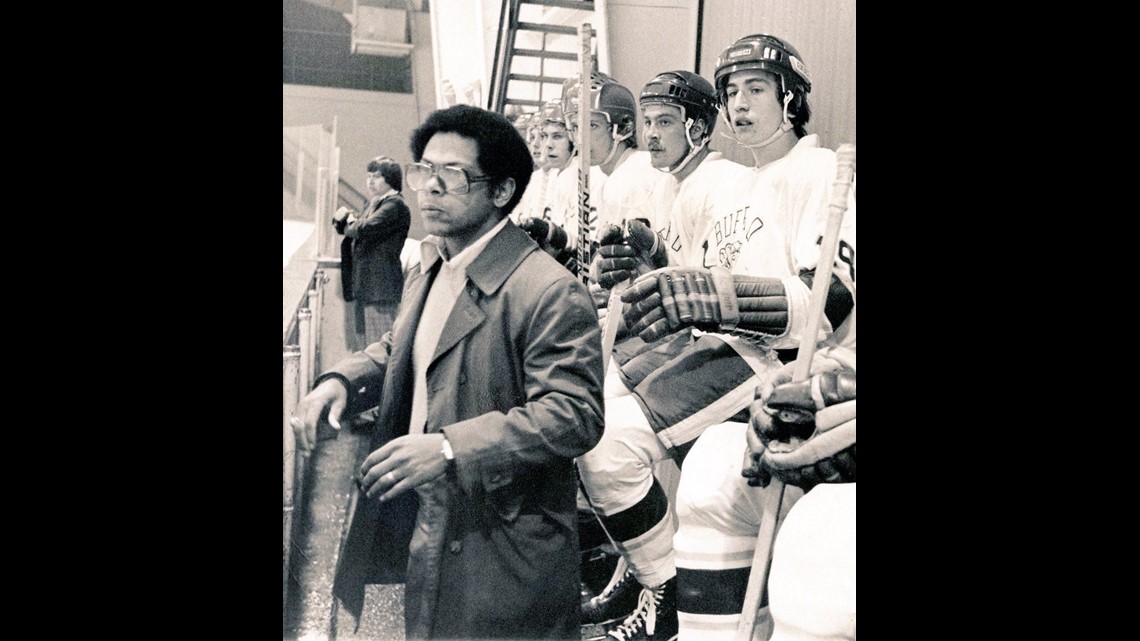
Wright just continued powering along.
“You overcome it by going within and finding the strength, and knowing that the strength comes from within to deal with it," Wright said.
He went on to coach at Buffalo for 12 seasons, compiling 138 wins and posting six winning seasons. In 1981, Wright took a year's leave of absence to pursue his doctorate degree, before returning to coach the team in 1986, the program's final year as a varsity sport at UB.
Wright's career in hockey did not end there. He later became the first Black scout in NHL history with the Anaheim Mighty Ducks.
His total time at UB spanned 40 years, including creating the university’s recreation and intramural program.
His legacy and impact, commemorated by a donation from his former player Murchie, to have the triple gym at Alumni Arena named after the historic head coach.
“The feeling is a great feeling. It’s a feeling of light, it’s a feeling of love, it’s a feeling of warmth,” Wright said.
“Immortality. I want the people that didn’t know him or play for him to realize this was a great man. I’ll never forget him. Very important in my life,” Murchie said.

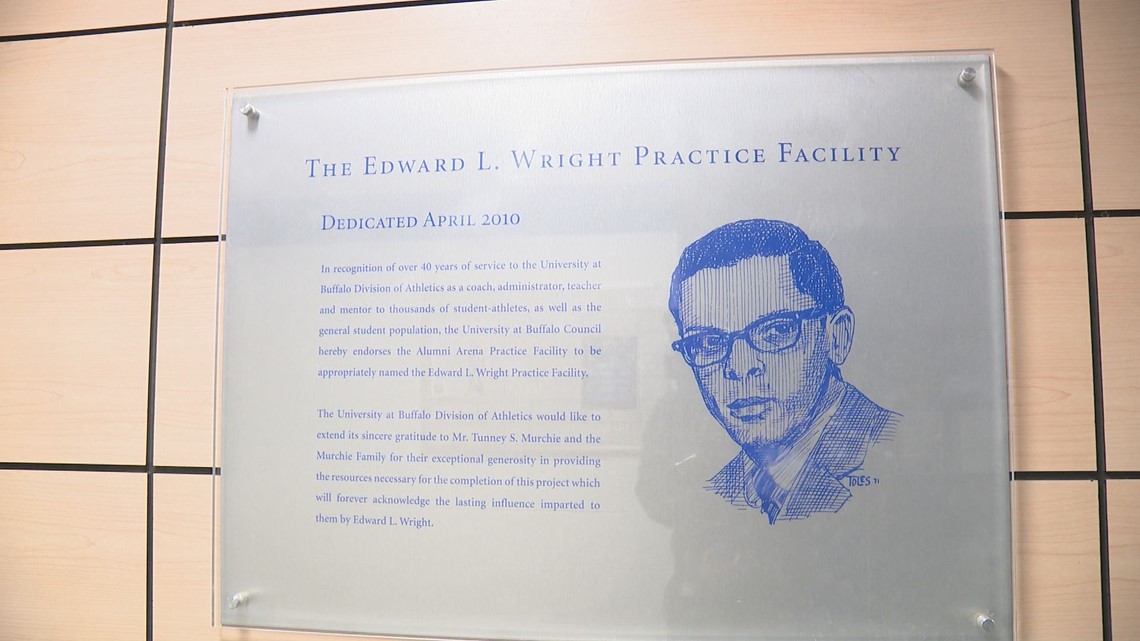

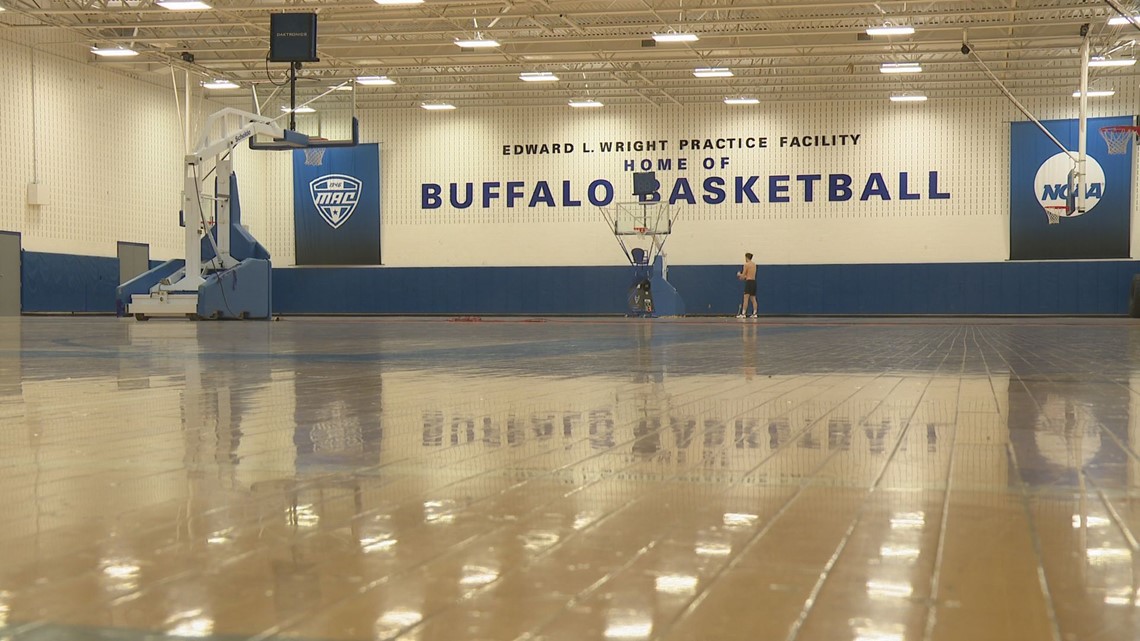
Wright’s impact extends to coaches now following in his footsteps like Seth Van Voorhis, a former UB coach, now at Niagara's ACHA team, who met Wright at his UB Hall of Fame induction.
“As a player of color, a coach of color, you look to Ed Wright. As Ed Wright stood at that bench and I stand on that bench, I want other people to see you too can do that,” Van Voorhis said.
As Wright’s legacy lives in the players and coaches that have come after him, he reflects on the two words that summarize his journey.
“Opportunity and respect. I guess that’s who I am, and take what you have and do the best you can with it,” Wright said.

